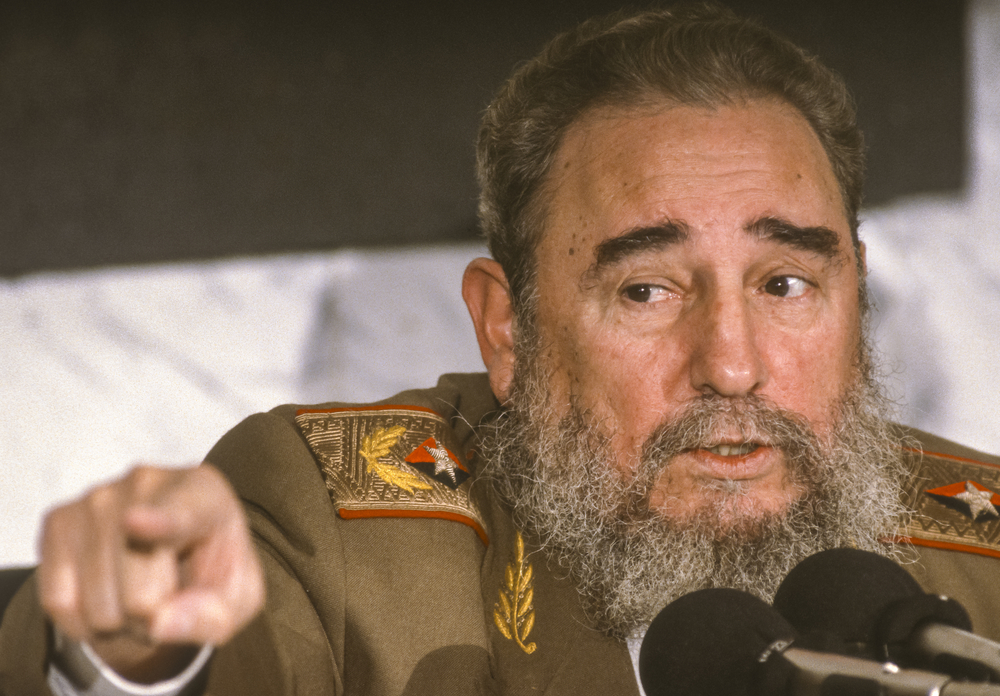Six decades after its celebrated communist revolution, Cuba remains a totem for America’s left. Yet the country is imploding into irrelevance. Fidel Castro is dead and Raul Castro is retired, but their successors rule as if 1989 had never occurred.
Cuba is economically backward, its residents are poor, the young are desperate, and people are fleeing. Instead of offering a hopeful future, communist apparatchiks enforce the policies of a brutal past. In short, Cuba is one of the world’s least free political systems.
As Freedom House observes:
Cuba’s one-party communist state outlaws political pluralism, bans independent media, suppresses dissent, and severely restricts basic civil liberties. The government continues to dominate the economy despite recent reforms that permit some private-sector activity. The regime’s undemocratic character has not changed despite a generational transition in political leadership between 2018 and 2021 that included the introduction of a new constitution.
Among the liberties denied people is to worship freely. A new analysis from the United States Commission on International Religious Freedom details how the regime employs standard tactics of repression, “such as surveillance, harassment of religious leaders and laypeople, forced exile, fines, and ill treatment of religious prisoners of conscience,” to control believers.
Faith in something beyond the material world threatens communist regimes, which treat the state and party as the ultimate authority. Although a majority of the population identifies as Catholic, the Cuban Communist Party seeks to strictly control religious organizations, most notably through the Office of Religious Affairs (ORA) and Ministry of Justice (MOJ).
These departments act arbitrarily and without accountability. Per the U.S. Department of State:
Religious groups reported the ORA and MOJ continued to deny official registration to certain groups, including to several Apostolic churches, or did not respond to long-pending applications, such as those for the Jehovah’s Witnesses and The Church of Jesus Christ of Latter-day Saints.” Moreover, Havana “selectively recognized groups and leaders based on their favorable view of the government.” Lack of legal authorization gives authorities another means to restrict people’s religious practices.
In practice, the regime wages war against religious believers. According to the Commission on International Religious Freedom: “The Cuban government continued to use surveillance, harassment, and ad hoc interpretations of legislation to suppress religious freedom and persecute religious freedom advocates. During 2021, the Cuban government’s crackdown on widespread protests severely impacted religious communities.”
Hundreds of people were detained, including a number of religious leaders. Several remain in prison: “These leaders are from unregistered organizations and were previously targeted by the Cuban government before their participation in the protests.”
When a second demonstration was planned, the regime threatened some religious leaders and placed others under house arrest to block the event. Those still in custody include: Elizabeth Cintra García, Loreto Hernández García, Donaida Perez Paseiro, Lisdiani Rodríguez Isaac, Lisdani Rodríguez Isaac, Lorenzo Rosales Fajardo, Denis Rosabal, Jorge Naranjo, Ibrahim Figueredo Fonseca, Yeremi Blanco Ramírez, and Yarian Sierra Madrigal.
The government refuses to make any accommodation for their religious practices. As the State Department reports:
Authorities continued to deny prisoners, including political prisoners, pastoral visits and the ability to meet with other prisoners for worship, prayer, and study. Many prisoners also said authorities repeatedly confiscated Bibles, crucifixes, rosary beads, and other religious items, sometimes as punishment and other times for no apparent reason.
Although Christians bear the brunt of government restrictions, Santeria practitioners and Rastafarians also have been jailed, and Muslims and other religious groups face discrimination. For instance, the regime blocked leading Muslims from traveling for health and religious reasons.
Repression and intimidation are constant. Security agents visit religious services, encouraging self-censorship. House church leaders are threatened with loss of employment and denial of education for their children. COVID rules were used to harass congregations. Importation of religious materials is sometimes difficult. Moreover, according to State: “The government used social media to harass and defame religious leaders, including Facebook posts and online editorials publicly targeting religious leaders or groups.”
Throughout 2022, Cubans were interrogated on returning from or when planning to go to the U.S. In one case, security personnel told a religious activist that “they knew of her travel plans and warned her to stop associating with people deemed to be working to subvert the Cuban government or she would not be allowed to enter the country upon her return.” Regime agents later placed a large container in her front yard to obscure their frequent visits.
A number of religious leaders have been driven abroad. Earlier this year, Pastor Carlos Sebastián Hernández Armas, secretary-general of the Baptist Convention of Western Cuba, fled with his sons after criticizing government repression. Pastor Alain Toledano, long targeted by Cuban security forces, was told to “leave the country within 30 days or face imprisonment.” Father David Pantaleón, from the Dominican Republic and head of the island’s Jesuits, was expelled because of his criticism of the regime.
Last January, Berta Soler, head of Ladies in White, and her husband, Ángel Moya, “announced a campaign seeking the release of all political prisoners from [last year’s] protests. Subsequently, authorities again subjected Soler and Moya to repeated arbitrary detentions. These detentions often included interrogations at police stations and fines.”
Reverend Yordanys Díaz Arteaga, who heads the Christian Reformed Church of Cuba, was detained and then put under house arrest in February. That appears to have been retaliation for his church’s leaving the Cuban Council of Churches. Reported Christian Solidarity Worldwide:
On 4 January 2021, María de los Ángeles Pérez, who liaises with the CCC on behalf of the Office of Religious Affairs of the Central Committee of the Cuban Communist Party, which oversees all religious activity on the island, contacted Reverend Díaz Arteaga to express concern about his denomination’s decision to leave the CCC. Pérez openly threatened the pastor, telling him that this decision would have “consequences and repercussions for him in his leadership.”
Two months later, evangelical pastors Mario Jorge Travieso and Velmis Adriana Medina Mariño planned a “prayer event called ‘Breaking the Chains’ to focus on the wives and mothers of political prisoners.” However, the regime “arbitrarily detained the pastors, interrogated them for six hours, and threatened them with imprisonment if they did not cancel the event.” The state also threatened to jail Maridilegnis Carballo, whose husband, Reverend Lorenzo Rosales Fajardo, was already in custody.
Meanwhile, the Cuban authorities continue to enhance their tools of repression. For example, parents already have been threatened with the loss of their children if they continue their religious activism. A highly problematic Family Code was approved in September, allowing
the removal of children from their homes if their parents fail to fulfill a list of criteria detailed in Article 138, such as a love of the homeland, respect for its symbols, and respect for the authorities. Cuban authorities often use the alleged crime of “disrespect” against the regime as a context to detain and imprison citizens.
Broader political repression also undermines religious liberty, as the lack of press freedom allows harassment and punishment of independent journalists who cover religious issues. For example, Yoe Suárez “faced arrests, confiscation of his property, fines, and two and a half years of travel restrictions.” He and his family finally emigrated to America.
Cuba has ended up like other communist states: barren both materially and spiritually. Those living on the island see only the decrepit past, trapped by a dilapidated regime unable to support its people or to give the young a better future. No wonder the authorities fear allowing the Cuban people to look to God for hope and answers.

